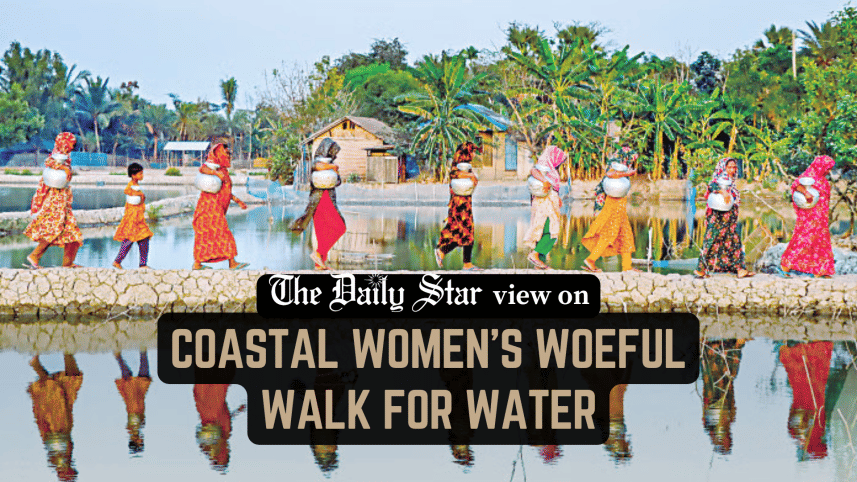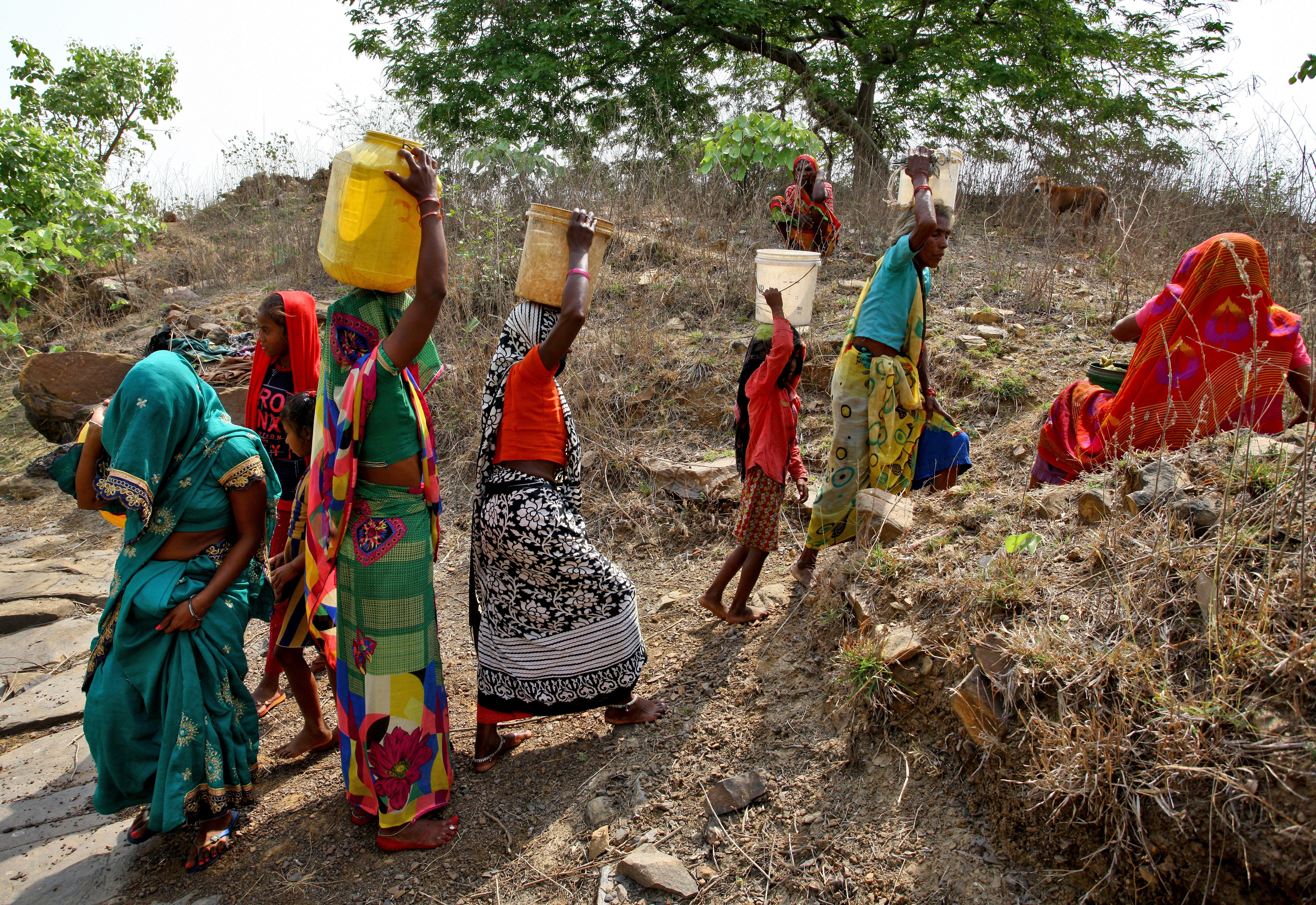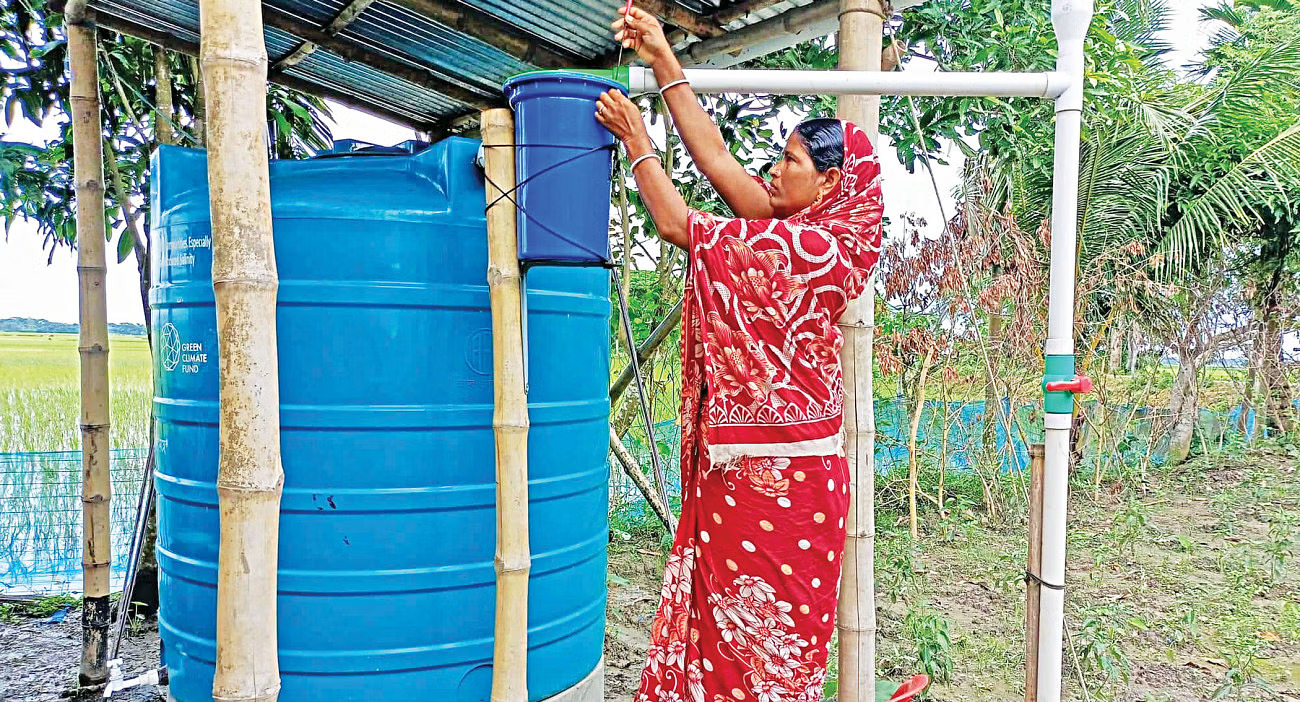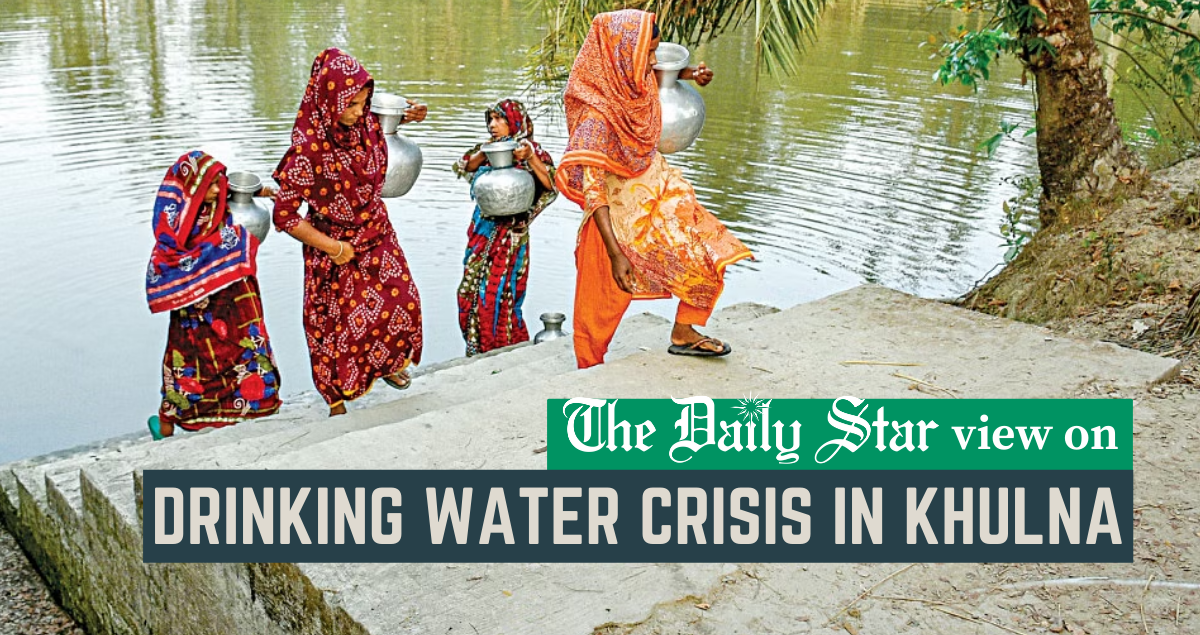Water crisis affecting coastal women disproportionately

It is disheartening that at a time when Bangladesh is boasting massive infrastructural development, women in remote areas in southwest still have to bear the burden of walking for miles and carrying back heavy pitchers of water for their families. People in these villages lack access to clean drinking water, and are often forced to drink salty water leading to serious health problems. A report by our Khulna correspondent describes the harsh reality of women who have been hit particularly hard by climate change and the proliferation of shrimp business that has resulted in the salinity of all nearby water sources.
According to the report, over 40 lakh people across the southern coast are facing a freshwater crisis with the women being the biggest sufferers, as they are the ones who must take the backbreaking walk to collect clean water for their families. Climate change has also led to lower rainfall, so harvesting rainwater is becoming difficult. Often people are forced to drink saline water and end up having hypertension and kidney diseases. Again, women are more affected by this, many developing reproductive health problems.
Salinity due to overzealous shrimp cultivation has wreaked havoc on the environment for decades. More and more land is being affected by salinity, making them barren and unfit for food cultivation. Yet precious little has been done to reduce the number of shrimp enclosures. The interests of local influentials have always taken precedence over those of the poor people in these areas. Climate change, meanwhile, has forced many paddy-field workers to seek employment in urban areas, leaving their female family members to take on all the responsibilities of the households, making their lives even more burdensome.
Urgent action is needed to address this situation. The government must immediately invest in building proper water infrastructure so that people can access clean water within the villages. It must also reduce salinity of the soil and water by drastically reducing the number of shrimp enclosures. Shrimp traders who have built unauthorised sluice gates in Khulna, thereby weakening river embankments, should be punished. The authorities must also support the women in these areas and end their daily misery of walking for miles under the scorching sun to bring back heavy pitchers of water.



 For all latest news, follow The Daily Star's Google News channel.
For all latest news, follow The Daily Star's Google News channel. 


Comments